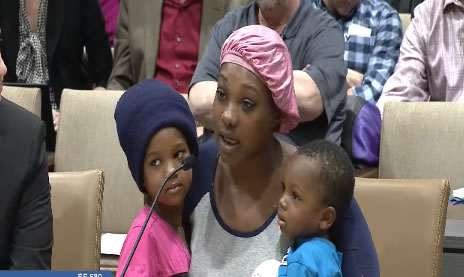

Share
Debate in the state Senate Monday over legislation that would bar local governments from adopting labor protections focused on whether the measure is a corporate power grab that threatens democracy.
The legislation, SF580/HF600, would restrict local governments from establishing higher employment standards – like earned sick time, fair scheduling and minimum wage – within their boundaries. Additionally, it would strike down any such ordinances passed after Jan. 1, 2016, nulling historic victories on earned sick and safe time in Minneapolis and St. Paul.
The bills are “clearly in line with ALEC and the Chamber [of Commerce] and how they look at workers’ rights,” said Senator Jason Isaacson, DFL-Shoreview. “This bill in many ways is an extreme over-reach.”
ALEC, the American Legislative Exchange Council, is a corporate-funded entity that produces “model bills” that are introduced at the local, state and national level. ALEC-written bills privatize public schools, weaken environmental and consumer protections and institute Right to Work laws to restrict unions.
The preemption measures before the Minnesota Legislature are “part of a nationwide ALEC strategy to disempower workers and communities,” said the Rev. Grant Stevensen of the faith group, ISAIAH.
Deborah Schmedemann, professor emeritus at Hamline Mitchell School of Law, testified that the legislation is “breathtakingly broad” because it bars local governments from adopting, enforcing or administering “an ordinance, local resolution, or local policy requiring an employer to provide an employee a particular benefit, term of employment, or working condition.”
“To me, that’s very unwise,” Schmedemann said. Normally, preemption laws apply to specific circumstances where a state has taken action on an issue, she said. The law, if passed, would apply to any matter that falls under its sweeping language.
Business owner Todd Mikkelson of Orono said preemption “would stifle” local elected officials and citizens. ““Don’t take away my voice at the city level,” he told lawmakers.
Despite these reservations, the Senate Jobs and Economic Growth Finance and Policy Committee approved the bill on a 6-3 vote, sending it to the Local Government Committee. A companion bill passed a House committee last week.
As they had in the House, backers and opponents packed the Senate hearing. Proponents included business associations representing retailers, grocers, hotels, liquor stores and others. They also included the Associated General Contractors of Minnesota, whose spokesman, Tim Worke, indicated that 80 percent of its construction firms are union-affiliated.
All expressed concerns about “a patchwork of local labor and employment ordinances” that would be confusing and expensive for businesses to navigate.
Opponents, meanwhile, said the Legislature has failed to address the needs of many of the state’s citizens.
“One of the reasons that local governments act is the absence of action at a higher level,” said Senator Erik Simonson, DFL-Duluth.
In contrast to the state legislation, which is getting only a few hours of hearings, the local ordinances on earned sick and safe time underwent extensive review and discussion over the course of many months, said Minneapolis City Council member Elizabeth Glidden.
Forty-one percent of Minneapolis workers do not have access to paid sick time, Glidden said. “Many of these are in the service industry, compounding the public health impact.”
Julie Blaha, secretary-treasurer of the Minnesota AFL-CIO, said “A vote to advance this bill is a vote to deny paid sick days to more than 150,000 working Minnesotans … It’s a vote to tell citizens that local democracy doesn’t matter.”
Rasheeda Credit, who testified with her two children on her lap, said the legislation would deprive her of the ability to persuade local officials to raise the minimum wage. Currently homeless, Credit has been volunteering with Neighborhoods Organizing for Change on the campaign for a $15 minimum in Minneapolis.
“A $15 minimum wage and earned safe and sick time would help lots of families in north Minneapolis like me,” she told lawmakers.

